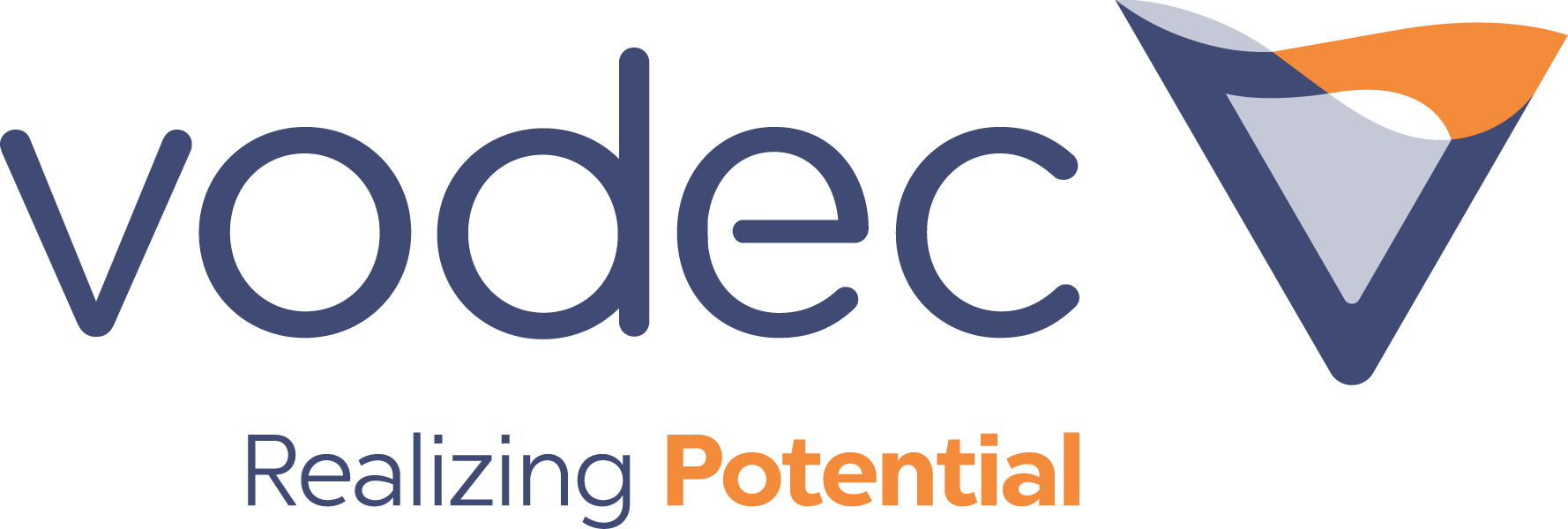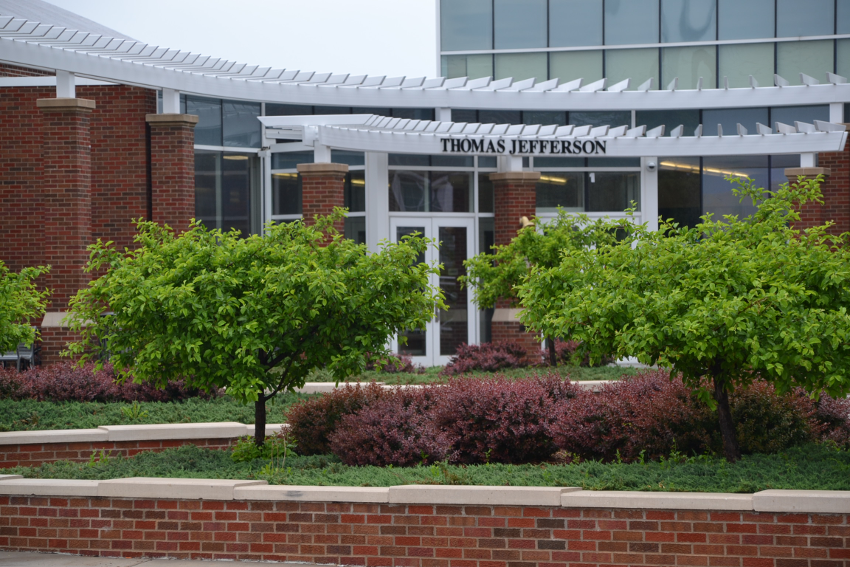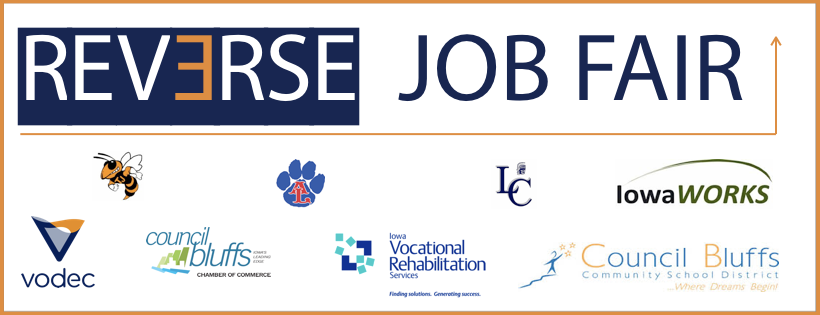
Council Bluffs, IA | Today Vodec held its first annual Reverse Job Fair, as part of a region-wide team co-sponsored by the Chamber of Commerce Leadership Group.
It’s the first step in a process Vodec believes could revolutionize how Council Bluffs and the surrounding areas approach the challenge of integrating the work force of the future for people with disabilities.
Sandy Day was the leader of the four-person group that first approached Vodec.
“This was like a capstone project for us. One of our assignments was to develop a community trustee project. …All of us understand how important these services are for the families and we fell in love with the mission. We decided to reach out and see if there was anything we could do to help.”
For Vodec, successfully modifying our jobs-related services to incorporate the vision of the Workforce Innovation Opportunities Act (WIOA) is a major change to how we have done business. WIOA is a law signed in 2015 that gives a series of requirements and incentives to businesses and communities to find, create or develop new ways to get more people with disabilities into community jobs. It puts forward the idea that it will be cheaper and better to re-shape the work place of the future to include as many people as possible than to keep spending an increasing amount each year to maintain sheltered work shops and work centers exclusively for a tiny part of the work force.
That’s a task Vodec has been taking on since 1968. But it is a new set of rules, and new requirements that require major changes to our existing systems.
A series of brainstorming sessions led to the creation of the Reverse Job Fair concept.
In traditional job fairs, companies sponsor booths or tables, and try to attract potential employees to fill general or specific positions they have open. Our experience has shown us this isn’t a great environment to showcase the skills of an applicant who might have specific needs that take longer to explore and discuss. The brainstorming team liked the idea of a job fair, but thought it might work better if an applicant had a more comprehensive chance to present their skills at their own pace. Vodec’s supported employment teams contacting companies every day and develop internships and jobs. Their reports tell us most employers haven’t thought about ways to make the work they need done more accessible to people with disabilities.
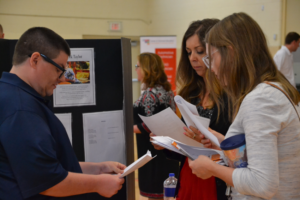
Vodec Consumer Derek reviews his resume with two potential employers.
A reverse job fair lets applicants prepare a booth that showcases their skills and interests. Then businesses that are looking for employees visit the booths and can get a quick assessment of what a potential applicant brings to the work environment; in both skills and accommodation requirements. Our plan was to prepare a group of Vodec consumers already receiving the Supported Employment service for this mass effort.
Once the team settled on the concept, the community rallied around the effort.
Council Bluffs Community School District played an instrumental role; providing the Thomas Jefferson High School Field House as a venue for the event, and adding their own group of graduating special education students to the fair’s applicant pool. Iowa Works helped develop skills models that identified specific vocational areas to which each applicant’s skills were best suited. Iowa Vocational Rehabilitation added expertise and policy guidance to the preparation, and other groups and auxiliaries started reaching out to companies to gauge support for the idea.
Southwest Iowa has low unemployment. That means it can be hard for a business to find good employees. Under WIOA’s guidelines, Vodec believes people who have permanent medical or developmental conditions are an underused community asset. Study after study has shown the benefits this segment of the community brings to the workplace. As a group, their longevity, pride in accomplishment, dependability and attention to detail are a bottom line asset to a company.
Most employers don’t know that.
Vodec believes the Reverse Job Fair is one way to help them see it, by meeting their own neighbors and future employees and seeing their skills on full display.
Our Supported Employment Team and Special Educators across the district went to work prepping resumes, teaching elevator speeches, and coaching applicants on proper wardrobe and etiquette for the event. And we all crossed our fingers.
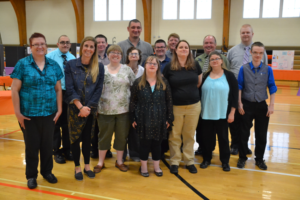
Vodec’s inaugural applicant team for the first annual Reverse Job Fair
In spite of a stormy morning, Vodec’s first annual Reverse Job Fair presented 29 future workers to a total of 24 businesses.
Services Development Director Daryn Richardson says the goal was twofold on behalf of the applicants: “First, we want to help applicants learn the art of presentation through job seeking, and the second thing is to introduce them to businesses.”
Jennifer Smith is with CHI Health Mercy Hospital. She said she didn’t know what to expect. Her medical experience includes work with this community, and she understands that “disability” covers a wide range of conditions and skill-sets. She was pleasantly surprised.
“They blew me away. The kids, the adults, they had their resumes, they were focused. They were better prepared than a lot of the people who we get applications from through the normal process. I think it’s promising.”
Promising may be just the beginning. Two people were offered jobs during the reverse job fair, and 10 more were encouraged to follow-up on conversations about potential jobs.
Vodec is optimistic the Reverse Job Fair will be one of the tools that helps us make a better, more inclusive future for the clients and consumers we have served over the years.
Planning for the second annual Fair is underway.
# # #
CB Leadership Group Members:
Sandy Day
Kristin Wolford
Patrick Garcia
Wes Norstrum
